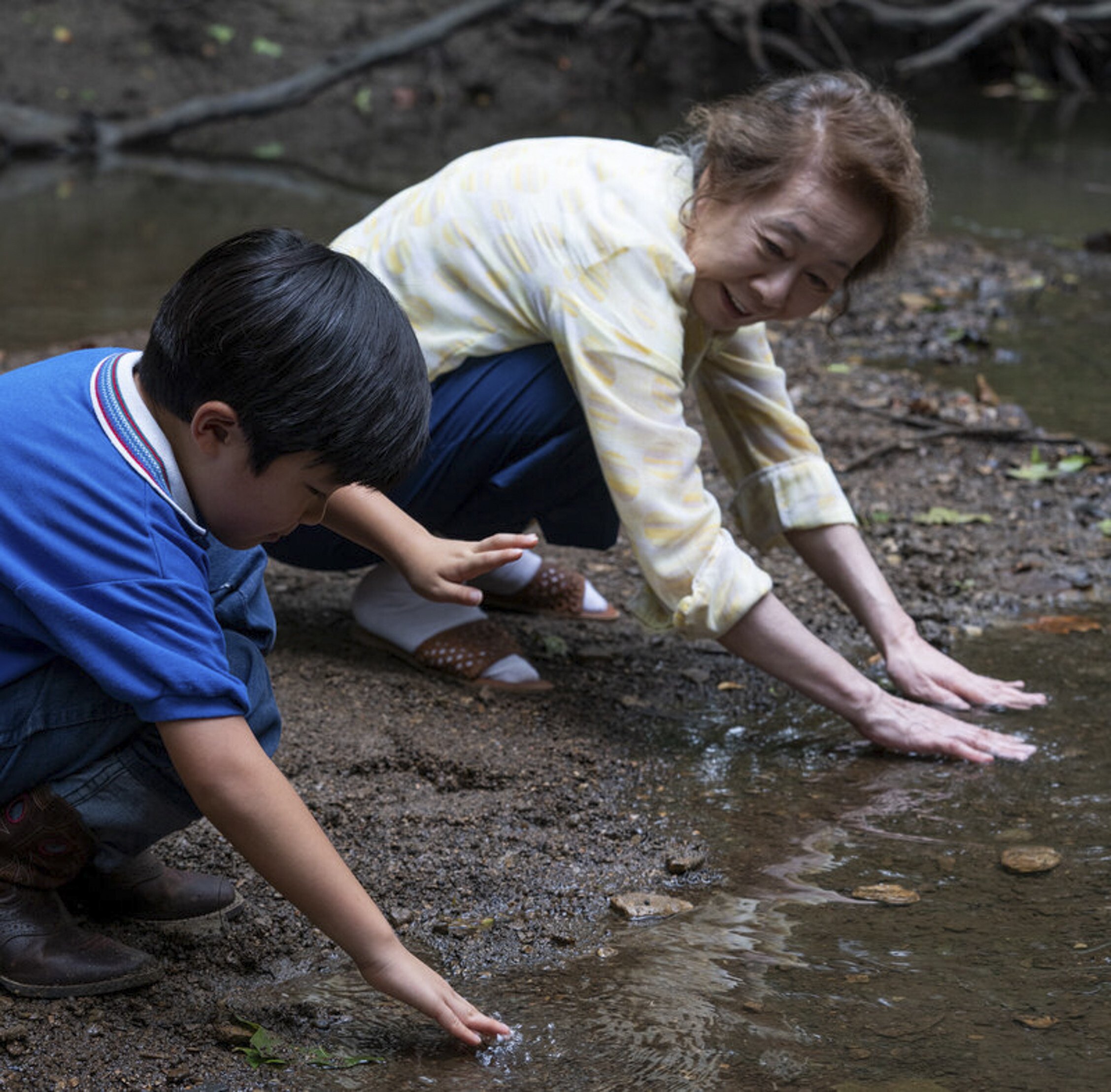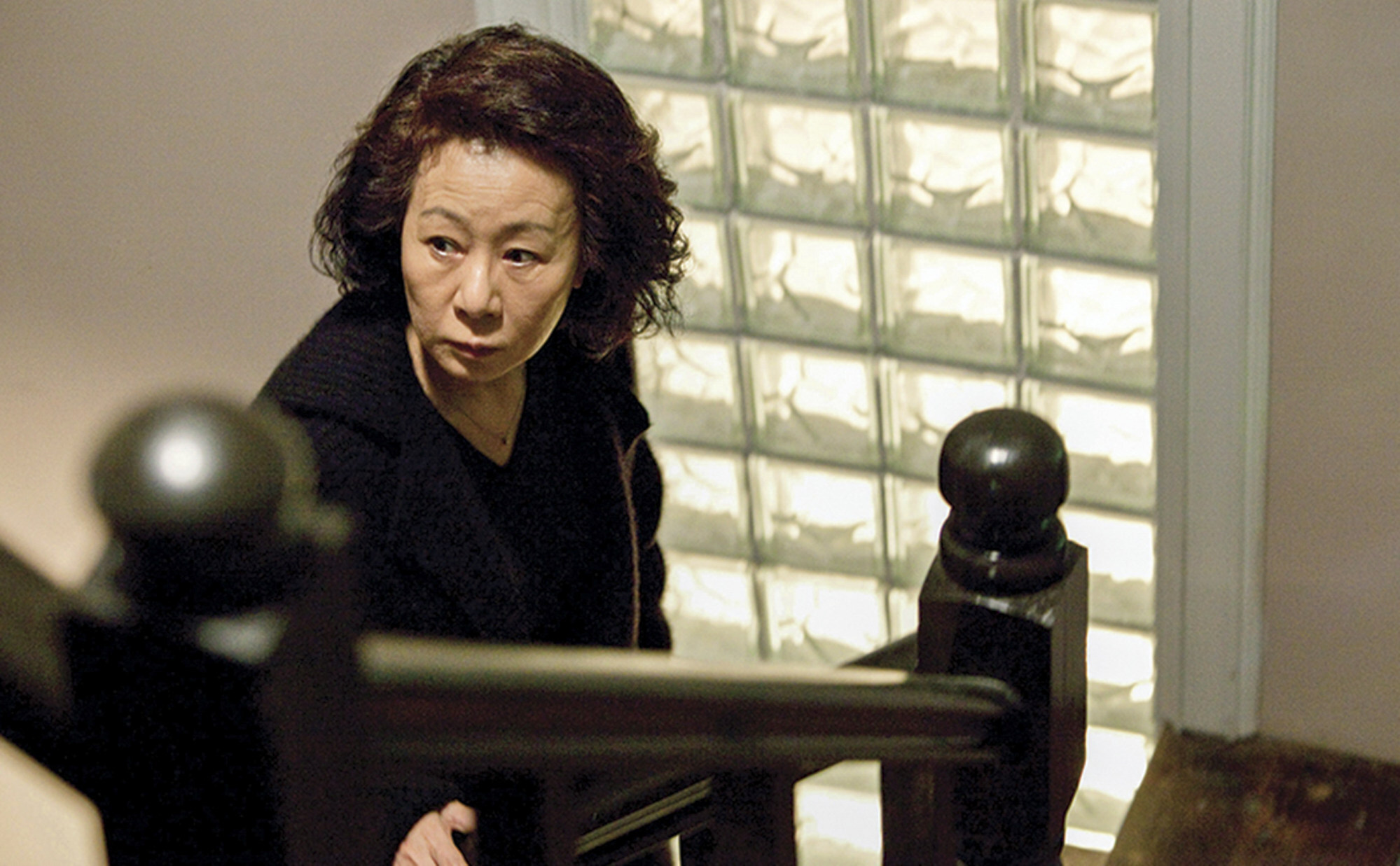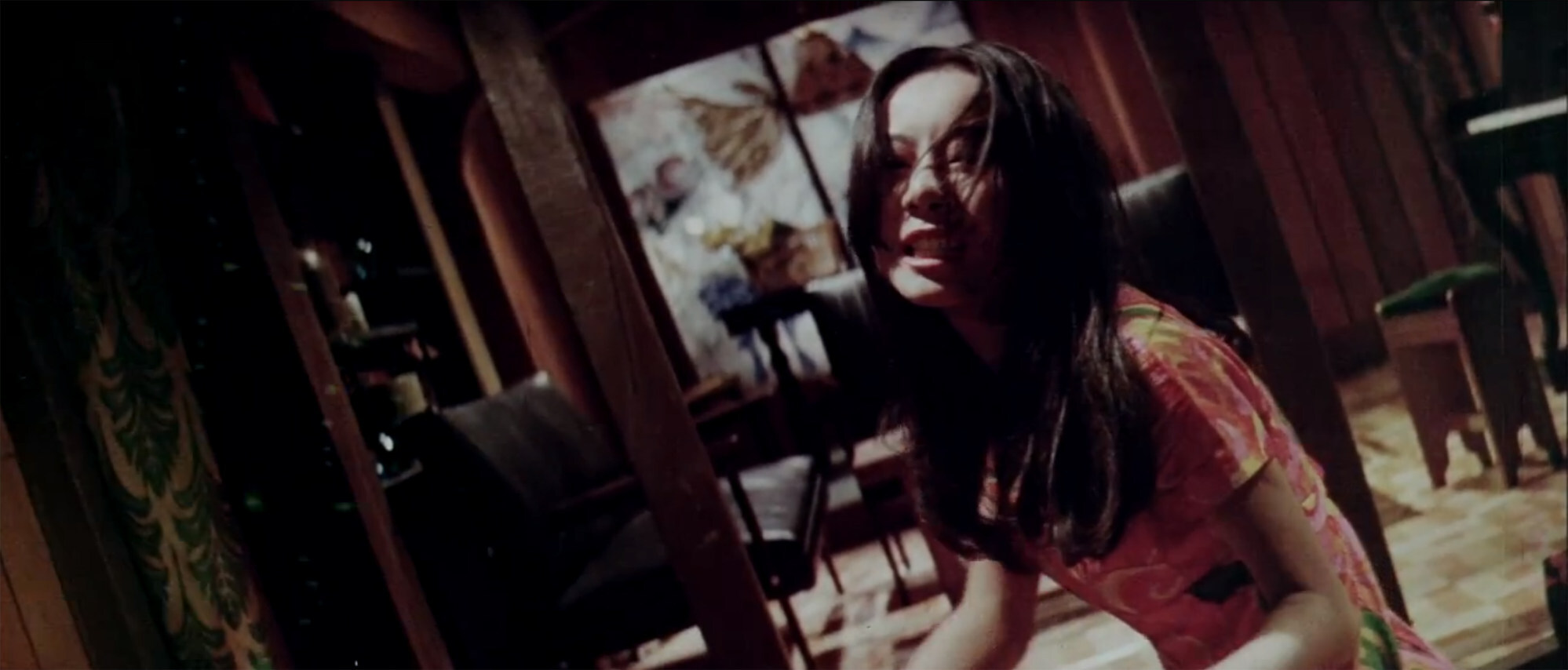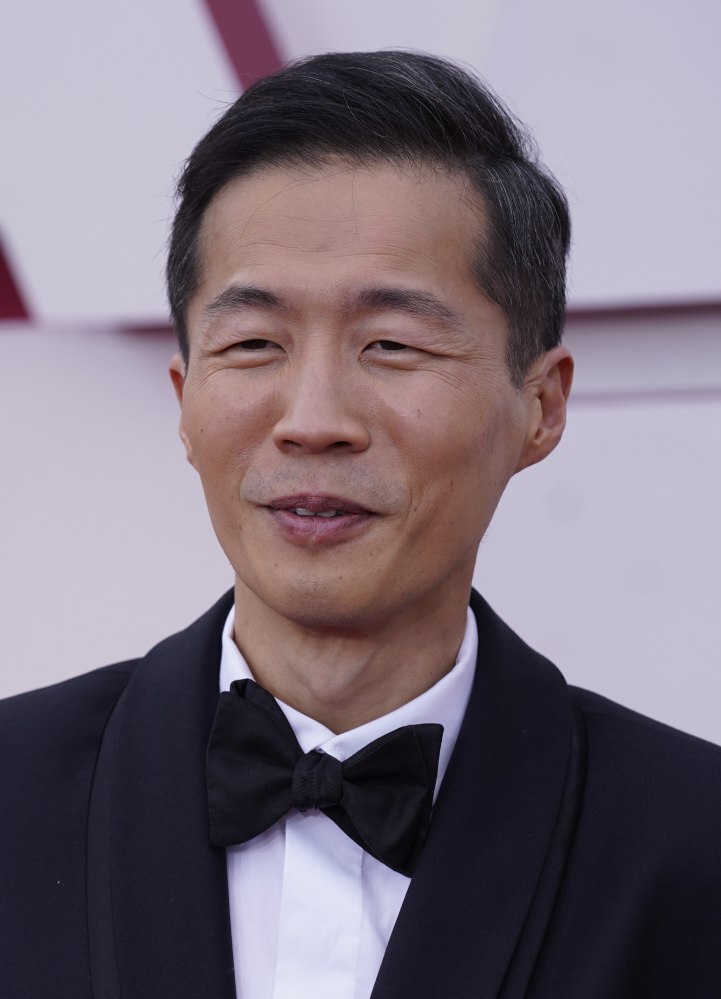
- At the age of 73, best supporting actress Oscar winner Youn Yuh-jung is a legend in her native South Korea. But working on acclaimed American film Minari meant starting over
This would not have happened in Korea, she thought. For one, she wouldn’t have been scheduled at 10am on the first day of a movie shoot only to be kept waiting. Imagine keeping Meryl Streep baking in the Oklahoma heat for four to five hours in the middle of July. But the force field of celebrity was gone. Here in the Ozarks, she was not Youn Yuh-jung, the 73-year-old actress with a career spanning more than half a century. On the set of Minari, she was an old Korean lady. “A Far East nobody,” she tells me, taking a long drag from a slim white e-cigarette. As in a classic American tale, she would have to start from scratch.
“I kept thinking about her as my grandma who has come to America to take care of me,” says Lee Isaac Chung, the writer and director, who drew from his childhood memories for the film. “She [left] a good life in Korea. It felt like it was happening all over again.”
In Minari, the four-member Yi family – father Jacob (Steven Yeun), mother Monica (Han Ye-ri), and their children, David (Alan Kim) and Anne (Noel Kate Cho) – leave California for the hill country of Arkansas in pursuit of Jacob’s dream of building his own farm. It is all exposition until the arrival of Monica’s mother, Soonja, played by Youn, who comes bearing gifts from home: gochugaru, hwatu cards, an envelope of cash.
During that first week on set, Youn observed independent American filmmaking at work. Minari was made on a scrappy US$2 million budget. The actors worked on a lower pay scale and an ever-evolving ad hoc script (Chung wrote it in English and then had it translated into Korean). They had little time for pre-production, which meant everything had to happen yesterday.

On the first day, they had nine scenes to shoot when the air-conditioning unit proved useless in the trailer home where the domestic drama unfolds. The heat was unforgiving, the pace unrelenting. They worried about Youn’s health. Chung felt the pangs of filial guilt and went to her trailer and apologised. “My first mistake in this whole situation is that I met you,” she told him. “My second mistake is that I liked you.” Later, as a joke (mostly), he knelt on the ground the way little David does in the film when he is being punished. “She’s on her e-cig and just starts laughing,” he remembers.
The thing about reverence is it makes you soft. In Korea, everyone calls Youn seonsaengnim, which translates to “teacher” or “master”. “In Korea, nobody will correct me. If I want to settle and do the same thing over and over, I’ll become a monster,” she says. Minari provided the tonic of unfamiliarity. “In Tulsa, I’m nobody to them. A newcomer. I need to prove myself with my acting.”
Stylist recalls joy of dressing a ‘fearless’ older woman
During a winding, Covid-19-racked Oscars season, Minari quietly became an underdog contender for best picture, then it was nominated, driving the Korean press mad with speculation. But that wasn’t all. Youn was nominated for, and then won, best supporting actress – the first Korean actor ever nominated. Youn blames all the commotion on Bong Joon-ho, the South Korean filmmaker who won best director the year before, for his film Parasite. “If Bong Joon-ho hadn’t won, then Korean people wouldn’t be all that interested,” she says.
Critics have consistently singled her out as “a scene stealer”, and much of the emotional weight of the film comes from her performance. When Chung sent her the script, he was teaching film classes in Incheon, at the Korean branch of his alma mater, the University of Utah. She liked its honesty. They began meeting regularly to piece the character together. Chung did not want a grandmother reminiscent of his own, which is exactly what Youn hoped to hear.
Soonja is a modern woman who shrugs off the familiar constraints of female domesticity. At first, her seven-year-old grandson, David, is dismayed by how ungrandmotherly she seems – she does not make cookies and teases him when he wets the bed – but she sees him in ways his parents can’t. She understands he is tough and can thrive in this land. She teaches him how to gamble and takes him with her to explore the surrounding area, where she discovers a creek in the forest. A good spot for minari, she says, a plant as robust in flavour as it is in constitution. The seeds she sows eventually sprout across the riverbank.

To truly appreciate the metaphor, you have to taste minari. My parents grew it in our backyard in Florida, in a miniature paddy fashioned from a baby’s swimming pool buried in the ground. As a child, I thought it was just the Korean word for watercress. Americans often refer to it as a herb, but really it is more of a wild green – san-namul. I hated the flavour: peppery, raw, vegetal. Completely unlike KFC.
Despite my aversion, the plant grew at an astonishing pace, spreading far past its plastic rim. My dad would run over the outgrowth with a lawnmower, but, uncowed, it would stretch further and faster than we could eat it.
Youn had taken a part-time job at a television station just as she was starting her studies at Hanyang University, in Seoul. Her role mostly consisted of standing next to an emcee and handing things out. The director Choi Sang-hyun suggested she try out for a talent audition, then a new concept, at the TBC network. “I was not a standard Korean beauty,” she says.
She passed the screen tests and began acting in dramas, eventually catching the eye of Kim Ki-young, the late director of The Housemaid (1960) and the godfather of Korean psychosexual cinema, who was always looking for new faces. Four years later, she landed a historically juicy part for Korean actresses, the titular role in the 1971 MBC drama Jang Hui-bin, about a Joseon-era concubine who weaponises her beauty to become queen before she is dramatically executed by poisoning.
More significantly, she made her film debut that year, with the second instalment of Kim’s Housemaid trilogy, Woman of Fire, followed a year later by another collaboration, Insect Woman.

“Kim Ki-young’s films are inherently unique and grotesque, but Youn Yuh-jung’s presence is so distinctive she never gets buried in them,” says Bong, who cites Kim as one of his many influences. “You could say she bores through the screen.”
In both, Youn plays a variation of the same character: a young girl in Seoul who gets entangled in sex work and an affair with a married man.
Insect Woman, in particular, is framed around male anxiety about powerful women. Kim pursues his
ideas so obsessively as to almost appear self-critical. Youn’s characters provide a snapshot of the moral complexities young women had to negotiate during a period of intense neo-mercantilist industrialisation in the country.
“I would usually get scripts from movie people, and it was all the same thing: a poor girl meets a rich boy, and their parents don’t accept her and then they get separated,” says Youn. “I couldn’t describe how I felt, but it was very different so I said, ‘I will do it.’ ”
Kim was eccentric and exacting. Youn hated working with him. As a condition for doing the film, he asked that they spend at least two hours a day together in the months before shooting. They would eat, have tea, meet each other’s families. He would observe her gestures and mannerisms, which he would then direct her to perform on set. He storyboarded every frame; actors were his vessels, which is partially why he liked working with new ones. He would spring things on her in the moment, such as having rats fall from the ceiling onto her bed or setting a sex scene on top of a glass table strewn with hard, round sweets that stuck to her skin.

She felt it was abusive but also understood he wanted to elicit an unfiltered emotion. “It was misery,” Youn says. “Maybe he’s a genius, but he’s very weird. Back in that time, I was thinking, ‘Oh, this man is just killing me. I don’t understand him at all.’”
Then, at the peak of her career, Youn retired. She married the singer Jo Young-nam and the newlyweds moved to the United States after hearing a pitch by American evangelical minister Billy Graham – first to Indiana and then to St Petersburg, Florida, to settle down. They lived next to the Northside Baptist Church, where her husband sang gospel. She had planned to learn English, intending to star in Christian films.
Mastering the language was a bigger roadblock than she had anticipated, so she devoted herself to being a housewife and mother. She made friends and learned to bake cookies. When she gave birth to their second son, Neul – the Korean word for “always” – Jo was in Korea. “Later on, I found out he had an affair,” she says. “He wanted to name his son Neul, but he’s not going to be neul. That was really tragic.”
The couple divorced, and Youn returned to Korea with her two children. For a time, she considered moving back to Florida, where she still had a house. She estimated she could scrape by working as a cashier at a supermarket, where she would make minimum wage. She recalls that her friend, television writer Kim Soo-hyun, convinced her to stay.
“She said, ‘Are you stupid? You can bring your name back,’” Youn says. “‘You were very big at the time. You forgot all about it.’”

So Youn began again. Only this time, she was a 40-year-old divorcee in an era that was unkind to such women. Network executives thought she should lie low for a couple of years. She said yes to whatever work came her way. Status was not the goal; survival was. She played a lot of stock characters: good mother, bad mother, poor mother, rich mother.
That same writer friend put Youn in her dramas, including her first television role since resuming her career, as the manager of an upscale tea shop in Love and Ambition (1987), a hit show at the time. She was a workhorse, always ready for her cue. Still, television direction felt unnatural to her sensibilities. “They always overacted,” she says. “The director always said, ‘Do more.’ I put all my feelings in that line, but they ask me, ‘More! More!’”
“She was different from other middle-aged actresses,” says screenwriter and director E. J-yong, who built the films Actresses (2009) and The Bacchus Lady (2016) around Youn. “There was nothing conventional about her.” Her distinctiveness was polarising. Viewers would sometimes call in to the station to complain about that woman with the strange voice and face. Her face is indeed long and pensive, and her smoker’s voice is as dry as her wit. As Bong says, “It’s different from what we would call husky. That would be too simple. There’s a rough, sandy texture combined with the precise pronunciation that pierces your ears.”
Youn professes ignorance about her own uniqueness yet feels protective of that quality in others. When Youn met her Minari co-star Han Ye-ri, in Tulsa, she told her never to get plastic surgery. “I said, ‘Don’t touch your face.’ She has such a good face. A very Korean face,” Youn says, laughing.
Over the next 20 years, Youn kept working in television and, for the most part, avoided the variety-show circuit – a vast wing of the Korean entertainment industry where actors endear themselves to viewers by sharing their private lives.
From Nomadland to Minari, an America in transition
In 2009, she starred in Actresses, a commentary on fame and the public eye. Part mockumentary, part reality show, it follows six actresses playing versions of themselves who come together for a Vogue cover shoot.
At 62, Youn was the eldest. The emotional climax is a long, frank conversation among the women as they gossip about their rivals and drink pink champagne. They wonder why female actors never hang out in groups like this. The divorcees end up on one side, the unmarried women on the other. “My divorce was like I was dead,” Youn tells the group. “It was a crime at the time.” Her younger colleagues tell her it is still hard, that it is still a scarlet letter. They begin to tear up. “Why are you all crying?” Youn scolds them. She tells them to drink up.
The new millennium has brought a renaissance for Youn: a run of seven consecutive films with Im Sang-soo, among them a 2010 remake of The Housemaid; a star turn as an ageing sex worker in The Bacchus Lady; multiple films with Hong Sang-soo, including, alongside Isabelle Huppert, In Another Country (2012); and a part in Apple TV’s upcoming adaptation of Pachinko.
She’s back on television as herself, too: Youn’s Kitchen, a reality series in which she and other Korean celebrities opened pop-up restaurants abroad for two seasons, began airing in 2017. (The third season, currently airing in Hong Kong on Now TV, is called Youn’s Stay, in which personalities such as Parasite actor Choi Woo-shik run a hanok-style guest house.) “It’s my luxury time,” Youn says.
Minari is restrained but insistent about what it is: an American story told almost entirely in Korean. The tight budget left little margin for error, and as Youn watched Chung make the most of what he had, she understood what was at stake. So she shut her mouth and did the work.

“She hates saying ‘I love you’, but she does it in so many ways,” says her friend In-ah Lee, a film producer who worked as her assistant on Minari. “By pulling herself together, not complaining, putting Isaac’s interests in front of hers. That’s love.”
When the cinematographer was impressed by Youn’s ability to nail a scene on the first take, she replied that it was because she’s a pro and gave a two-finger salute. The gesture became a running joke on set. Every time someone pulled something off, it was because they were “pros”.
When Youn viewed Minari for the first time, at its Sundance Film Festival premiere, she was characteristically unsentimental. She zeroed in on the flaws. She saw scenes she wished she could have done better and noticed Yeun had not shed his American accent in certain moments. She looked around the theatre and wondered why everyone was crying. The moment did not hit her until a later screening, when Chung went onstage and received a standing ovation.
“Then I cried,” says Youn. “I was so proud of him. I always cry when reality comes.”

